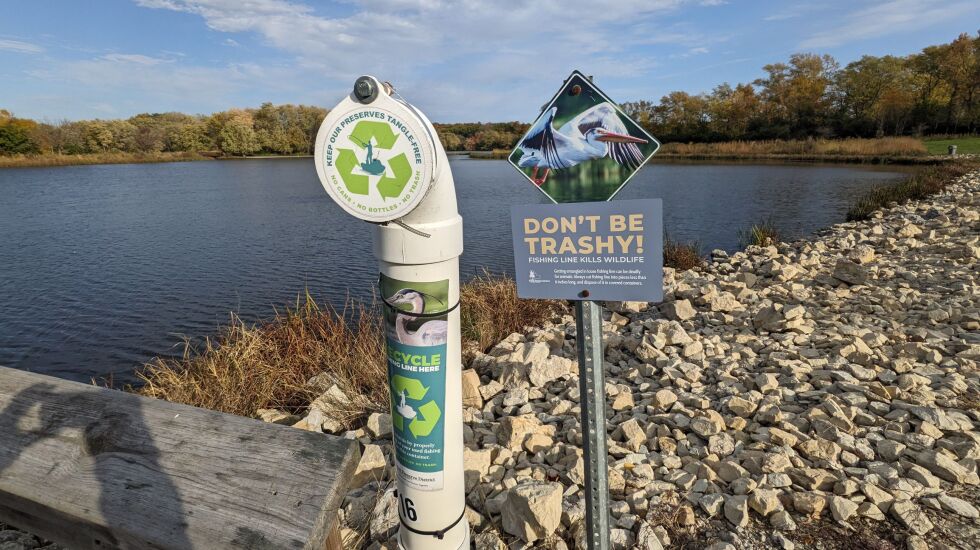
Dennis ‘‘Ben’’ McGee led me down a tangled path.
‘‘I’ve been storing a bunch of old fishing line (on spools) and looking for a responsible way to dispose of it,’’ McGee emailed. ‘‘Searched a bit and have not found a source (Bass Pro no longer accepts).
‘‘Online (pun not intended) suggestions were to cut into smaller sizes (or burn), but while it might reduce threat to wildlife, it surely doesn’t benefit the environment. . . . I’m certain there are many of us (your readers) in the same boat (pun intended).’’
Not as easy to answer as I expected.
‘‘We tried to go through Berkley, who had a program in the past, but they stopped taking it, as well,’’ emailed Steve Silic, a senior fisheries biologist for the Forest Preserves of Cook County, which has a large program for collecting fishing line. ‘‘After much research, particularly with environmentally friendly waste-management companies, it was determined that the best option was to just double-bag it and throw it away with regular trash. So it is not getting recycled, but at least it is getting properly disposed of and not causing issues with wildlife.’’
Berkley lists its recycling program online. Despite multiple efforts over several days, however, I never received confirmation either way.
The Chicago Park District has its fishing-line receptacles bagged and waiting. If you notice an overflowing receptacle, notify staff. Don’t clear it out with your bare hands. Miscreants stuff sundry items into the receptacles.
Use the fishing-line receptacles or dispose of line properly. Too many times, birds (usually ducks or shore birds) become entangled in line litter.
Alan Anderson, the research committee chair for the Chicago Bird Alliance (formerly the Chicago Audubon Society), this summer sent a photo of an entangled Baltimore oriole that died at Bode Lake Forest Preserve. That’s unusual because orioles are high-canopy birds.
‘‘A tough, longer way to die (being caught by a hawk would’ve been a faster death),’’ Anderson noted.
Wild things
Tom Jurich reported a small movement of sandhill cranes — about 50 — Sunday afternoon over Munster, Indiana. Expect there to be a larger movement this weekend, considering the weather forecast.
Stray cast
Tyson Bagent’s Sunday feels like making a quick stop at an irresistible subdivision pond and catching a 5-pound largemouth bass.







